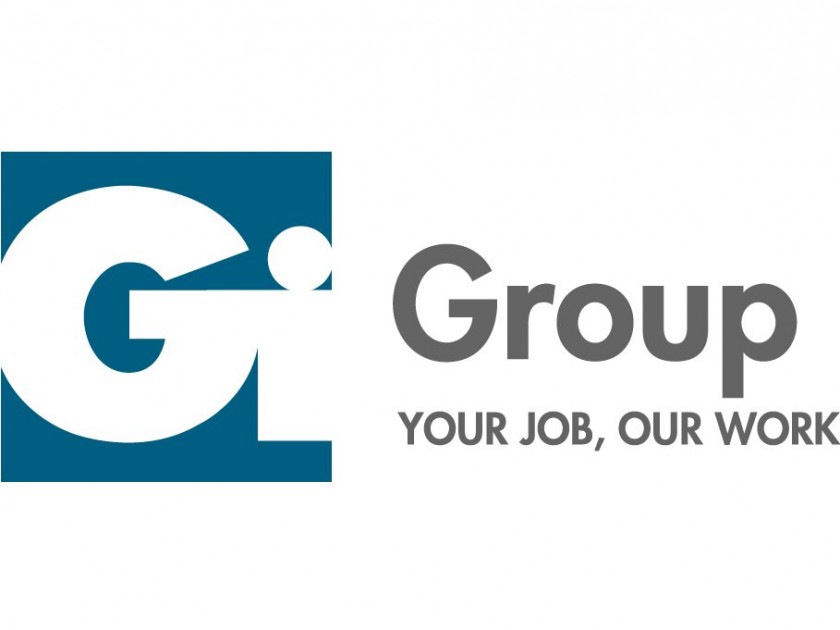Awaiting a stabilization

The businesses remain cautious, limiting risk and investments and planning in a short time window. The flexibility and ability to quickly adapt to market conditions are key, and the sphere of recruitment is no different. Acquiring cadres with necessary competences reflecting the current business needs remains a challenge. We talked about challenges faced by the labor market with Anna Wesołowska, Managing Director at Gi Group Poland S.A.
FOCUS ON Business: This Autumn, Gi Group Holding launched a campaign to build awareness of the dangers related to fraudulent activities in the sphere of recruitment. How crucial is this problem?
Anna Wesołowska, Gi Group Poland S.A.: According to the research of the Data Protection Authority, a third of all Poles have experienced attempts to phish out their data through fraudulent SMS messages, phone calls or e-mails and only half of them are aware of how to act in such a situation. Such practices are also utilized in legitimate recruitment processes – aside from their obvious benefits, the growing popularity of online recruitment has brought an increased number of frauds and cons. By promising high salaries or speeding up recruitment, the scammers are abusing the uncertainty and lack of candidate knowledge to steal their personal data or money.
We noticed an intensification of such activities and thus decided to act. In Autumn, we launched a “Don’t fall to the recruitment scam #NaRekrutera” campaign to counteract fraud, teach about the dangers related to seeking or changing employment and indicate what a professional recruitment process should look like. We are glad to see industry and employer organizations take part in it – including FPP Konfederacja Lewiatan, PFHR or the CERT team of NASK which deals with cybersecurity issues daily. Fraud is a problem, we should speak out about it and raise awareness.
I hope that by educating the market we will greatly reduce the scale of this issue.
What kind of labor market environment is to be expected by the end of 2023?
The businesses remain cautious, limiting risk and investments and planning in a short time window. The flexibility and ability to quickly adapt to market conditions are key, and the sphere of recruitment is no different. Acquiring cadres with necessary competences reflecting the current business needs remains a challenge. Interestingly, a third of all employers have pointed out a gap between the required skills and those presented by the candidates. Another undoubtedly important issue is employee retention, whose impact has been confirmed by the results of our “Labor Market Barometer”.
Retaining the employees has been made more difficult, as compared to 2022 the percentage of workers content with their place of employment has fallen from 72% to 66%. At the same time, the number of workers who are discontent or looking to change their jobs has increased. It bears pointing out that said discontent is higher among all groups of employees, regardless of their sex, age, income levels, position or industry. This phenomenon is troubling, as it could lead to decreased motivation and engagement, as well as increased turnover.
What motivates the employees? How strong is the wage pressure?
Financial matters are a key motivator, which is of particular importance at a time of rampant inflation, and thus increasing costs of living – as of writing, 7 out of 10 employees are complaining about the negative effects of the worsening economic situation. The Poles are aware of their dwindling buying power and expect their wages to follow the prices. The businesses are relying on financial incentives, however, the data shows that, on average, the wages have increased this year by 10%. It’s less than the employees expected.
An attractive benefits offer remains another important factor, though not quite as important as the salary level. Compared to the last year, the importance of trainings, education subsidies and clear career paths has increased. It bears highlighting that a third of all employees are pointing out the lack of promotion opportunities in their current place of employment. Flexible work hours and work-life balance solutions are also appreciated by the workers. Over the past few years, the importance of remote or hybrid work has increased as well and the aversion to return to the offices is very noticeable.
How are Poles dealing with the de creased buying power?
The double-digit inflation is a key factor impacting the affluence of Poles, increasing their living costs and decreasing their buying power. Increased prices of goods and services necessitate prudent management of household budgets or seeking additional jobs.
According to our latest research, over 40% of professionally active people have picked up side jobs besides their primary full-time jobs. Moreover, almost half of them expect to keep these side jobs over the next six months. Working beside one’s full-time job is becoming increasingly common in Poland, with a fourth of all people picking up extra hours in the same company and a third outside their place of employment.
The employees should also consider alternative solutions, such as changing or increasing their qualifications. This is potentially more worthwhile, as it could lead to increasing one’s long-term labor market attractiveness and the upskilling opportunities are more available than ever. Online courses, internal trainings and professional growth programs enable the employees to grow flexibly, adjusted to their specific needs.
To what extent does increasing and changing one’s qualifications solve the problems faced by the labor market?
They constitute an important factor in facing the needs and challenges of the labor market. They are necessary, but also inevitable in the context of the increasing pace of technology development, including digitization and automation. According to the “Manufacturing Industry – Global HR Trends 2023” research, carried out by the Gi Group Holding, as many as 53% of managers globally believe that implementing modern systems would increase productivity, a fourth claims it would increase effectiveness and a third hopes for cost reductions.
From the employee perspective, increasing one’s qualifications or reskilling can open many doors and create new opportunities. Combining one’s experience with new skills leads to increased competences in accordance with the current business needs, strengthening one’s chances for a promotion or a better-paid position. Increasingly often, they will prove necessary for retaining employment over one's entire career. Another important fact concerns qualifications courses and trainings building motivation and engagement of teams, which in turn bolsters the effectiveness and productivity of the entire organization. This also increases the market competitiveness of a business.
In this context, the growing openness of the employees to increase or change their qualifications is a welcome sight. According to our “Labor market parameter”, as many as 42% would consider such an option. Among those concerned about their ongoing employment or planning a job change, this percentage exceeds 70. This marks an increase of 10 percentage points as compared to the last year. The causes of this could be attributed not only to the current economic situation but also to the increased employee awareness as to the inevitable changes to the labor market.
To what extent are businesses supporting their employees in this area?
Reskilling and upskilling are an answer to rapid changes. The technologies are being developed at a breakneck pace, therefore investment in changing one’s qualifications is key to retaining competitiveness – and a necessary element of business strategy. Employees increasing their qualifications are more productive, flexible and ready for challenges faced by the market. It’s also a way to retain talent and promote innovation.
Regrettably, not nearly enough employers are taking deliberate, coordinated action. Many of them claim recruitment difficulties and mismatched candidate competences. They need to evolve their approach, especially given an employee shortage and pessimistic market indicators.
Thank you for the interview.
This article comes from magazine:
FOCUS ON Business #13 November-December (6/2023)
 Check the issue
Check the issue








